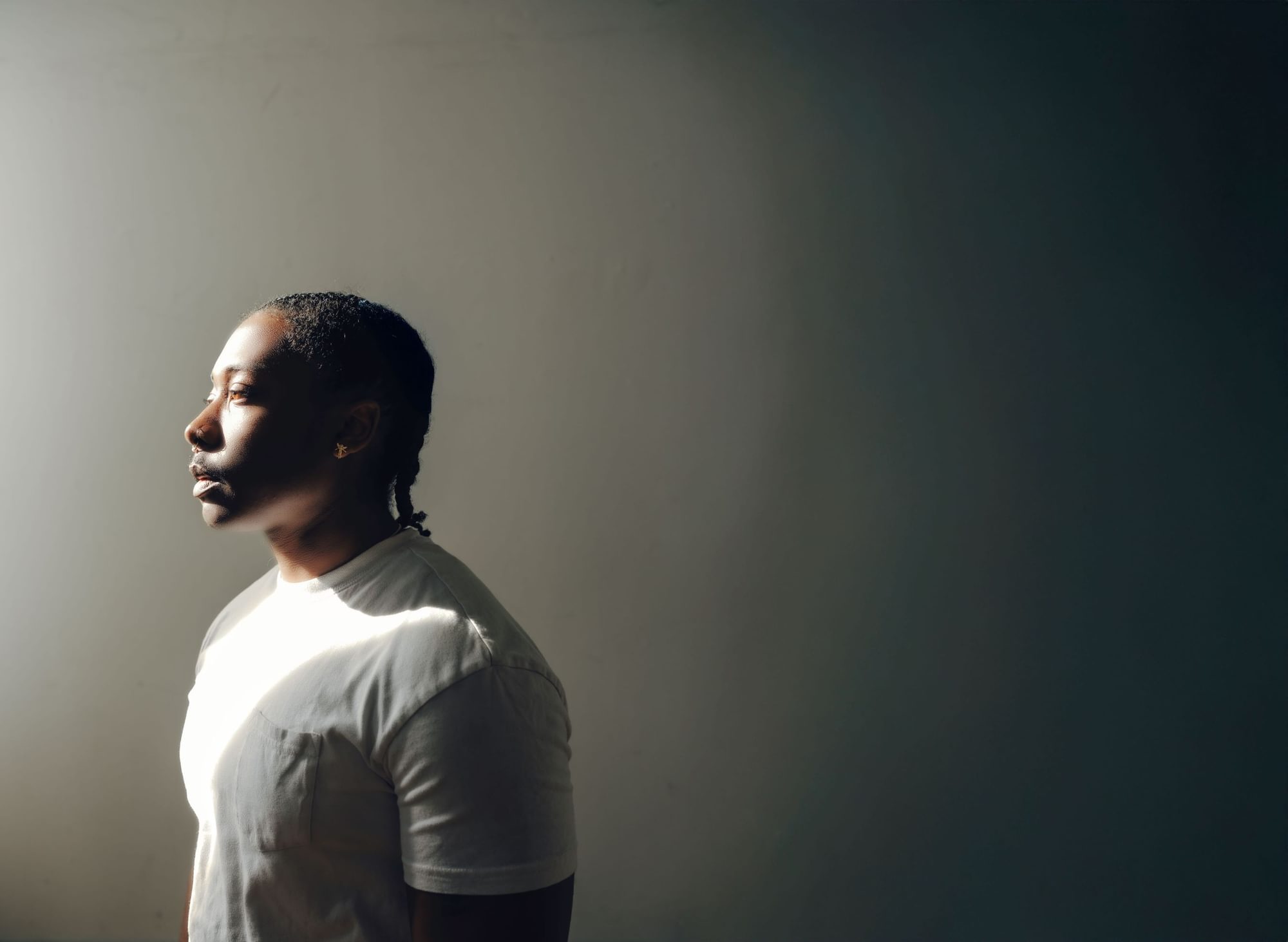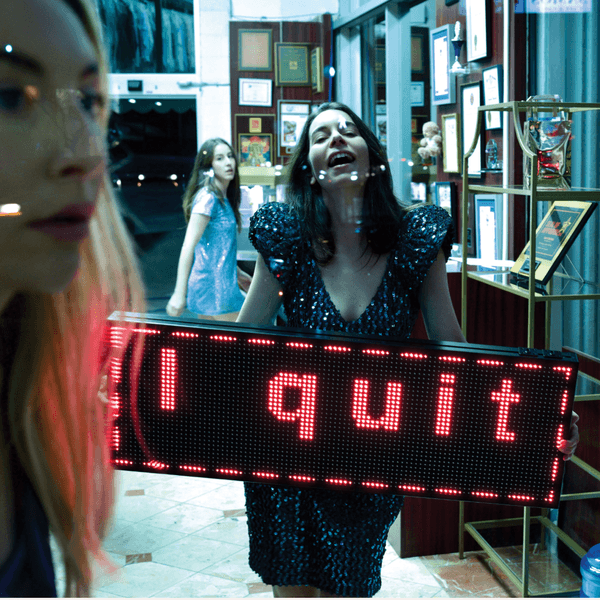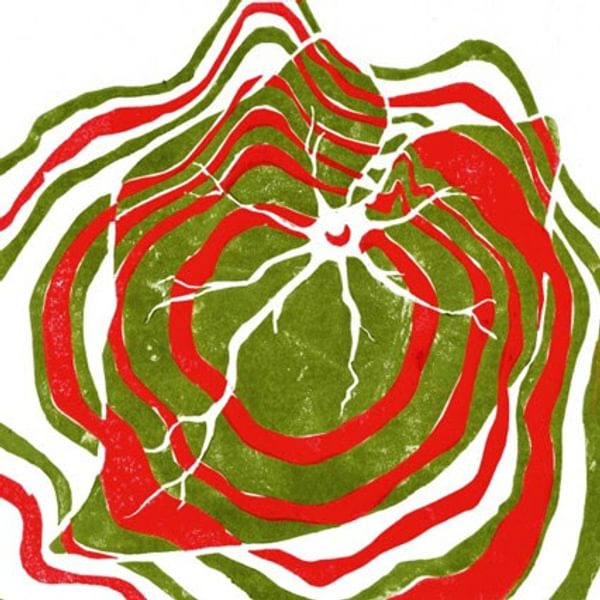
McKinley Dixon is alive! and ready to tell you a story
On Magic, Alive! Virginian rapper McKinley Dixon achieves sonic resurrection through an overarching story delivered via resistive melodies and an alchemical tongue. Emmeline Armitage investigates the easter eggs and callbacks.
Music comes to McKinley Dixon in episodic bursts, in little vignettes and visual details that link together like a paper chain – a fact made entirely apparent to me during our conversation. During the course of an animated hour, he stops occasionally, as if to switch between breathing and transporting himself to the world of his new album, eyes-closed and scene-hopping, reciting straight from the heart.
“The story begins with these three kids who tragically lose their friend,” he describes. “And in trying to bring him back to life, they find out that the only real way to live forever is through song and dance.”
Magic, Alive! is Dixon’s fifth studio album (particularly impressive for a 29-year-old), and accordingly, it achieves a maturing, a softening, yet also a return to childlike wonder. Its central conceit is a story of devout friendship, which emanates from a love of literature and the transcendental. And while the listener is taken on a journey through juvenilia and magic, Dixon lands on some pretty profound philosophy. In doing so, he enters a new era of his career, levitating from the critical acclaim he received while still a college undergraduate with the release of 2016’s Who Taught You to Hate Yourself?.
“The story also begins with me on the porch in my grandma’s house, talking with my homies,” he continues. I ask Dixon to give me a sense of the location of the music, the physicality and also the intention laced throughout its 35 minutes. He closes his eyes again: “I write in a very segmented way, taking a moment from time and appreciating its value, then capturing that in two-to-four bars. Each song is not a specific piece of story – it’s all overarching, it’s all me. And the process of making this album was fun because I’d already made songs on records that were sad, or for my mamma, or processing grief and loss. This record is the culmination of all that, and accepts that grief is not just one thing, and that there can also be a lightness to this story I’m trying to tell.”
The porch steps Dixon refers to are located in the record’s second track, “Sugar Water”, featuring Quelle Chris and Anjimile. Lounging in the midday heat, the rapper’s protagonist and his cousins sit and wonder how they can raise their friend back from the dead. Through the break of choral exclamation, weaving brass melodies, and the vocal syncopation akin to the likes of Anderson Park (or perhaps the song’s more direct referee, Andre 3000), the upbeat number disguises a dark matter. References to “voodoo” and the “dance of the dead” align with the concrete porch cracking to birth a “new host.” Which is where this Frankenstein-ian tale begins…
Now a proud Chicago resident, Dixon occasionally returns to his native Virginia – a kind of musical home. When it came to making this more playful record – about brotherhood and the spiritual power of music – he wanted to imbue its creation with similar meaning; many of the record’s skilled collaborators are holdovers from his days majoring in English at Virginia Commonwealth University, where he released his debut album and its Gemini twin, The Importance of Self Belief.
There is, however, one notable addition to Dixon’s crew in the form of London-based beat-maker and producer Sam E. Yamaha. Speaking highly of this collaboration, Dixon notes, “It worked so well because he would take the bare bones of the thing and then add onto it. And it came together quickly in that way, with the physical distance allowing me somehow to see the world of the music better, with more intimacy.”
The fact that Dixon (who often gets labelled a ‘poet’) also studied English is not in the least bit surprising. Magic, Alive! is graced with a litany of voices and artful references, a practice that has seemingly been in development throughout his musical journey – for example, this album’s predecessor, Beloved! Paradise! Jazz?!, takes both name and inspiration from the great works of Toni Morrison.
The tradition is passed down to his most recent single. “Recitatif”, featuring Teller Bank$, unravels as a kind of triptych (which makes sense given his visual approach to songwriting) – with three sections of different tempos and intensities. Its title refers fittingly to a musical style that sits between speech and song, but also to another Morrison story that uses three different timeframes to relate widespread racial tension in the US.
I see Dixon’s smile crack wide open when he realises I’ve found his easter egg: “You got it! The song marks the end of an era, calling back to those things through name that have influenced me and a life’s work, but it’s my own spin on it – a dream, a day, and a dare. I’m able to look at where I am now, and where I might go.” As soft piano meets effected monster vocals, we hear “a Black king feel the fury again,” where the circumstances of the world “make it absurd when we win” – here, Dixon powerfully demonstrates the importance of telling a new story.

And it’s not the only occasion on which the rapper clings to literary allegory and analogy as a cloak of invisibility to weave through difficult topics. At times the result is reminiscent of the UK’s Kojey Radical, who also skilfully plays both jester and insightful narrator. On “A Crooked Stick” Dixon warns a listener of the “NPC, white noise, blip blop,” projecting a sing-song-like tone and theme that on the surface appears fictional, but is actually rooted in our own surreal reality. On “Run Run Run Part II”, a nod to his 2023 track of same name, the chorus feels like a dark nursery rhyme, the central voice having to come to terms with a premature death or “die under the stars” – an obviously Shakespearean conundrum.
When asked where his penchant for storytelling came from, Dixon commends his schooling and local youth communities: “Really, I’d always been doing public speaking, just like my mom. I remember being asked to learn a poem at school and I picked something from Maya Angelou. But I’d learnt that from church, which was always a big production – just the sheer power of it, commanding a crowd through song and emphasis, how to make someone listen to everything you’re saying and yet make it vulnerable, and emotional.
“I had to learn from a young age that how you hold yourself in a crowd of people is how you secure your position. Also being who I am and being Black, the way I communicate has an inherent rhythm to it, a motion. If you are around your community in that way, your voice is just strengthened. Music never separates from the story because it’s the quickest way to tell one.”
One of the major themes of this album is therefore the inheritance of words and their cumulative, successive power. And whether it’s the “generational snappin’” or his “father’s loose-fitting clothing” Dixon is trying on for size, it all seems to fit. Towards the album’s close, the song “Listen Gentle” hammers home the point: framed as a conversation between a child and an adult, the listener is guided, “If I show you how to do it / And you get the magic right / You can use these tricks / To help yo’ ass take flight.” And so the music falls on a powerful moment of intergenerational wisdom, with Dixon speaking simultaneously to those he has loved and lost, as well those who have guided him to where he is now – “how’s that magic alive?”.
However, despite a great deal of the record being message-driven and filled with musical intensity, Dixon is rightfully resistant to being forced inside a genre box. When asked about the terms ‘conscious hip-hop’ or ‘jazz rap’ he often gets associated with, I can see his clear discomfort – “those terms become other things depending on who says them,” he explains. “Music is magic, because it is undefined. I just made this for me, with you in mind.”
For Dixon, it’s all rooted in play, in experimentation. As he “hops in and out of story books” he sees a welcome return to youthful characterisation, with both verbal and musical conclusions that all seem to be about freeing the self from pain and trauma. “I wholeheartedly believe that one of the ways to live forever is through children’s media, through tapping into childlike wonder. Magic is dangerous, fast, fleeting, beautiful, bright, close, quick – I was really trying to think, how do I portray these words?”
Dixon’s magic spell is therefore not a whisper, but rather a defiant yell into the arms of the listener – holding them, warning them, and entertaining them all the same. His words become incantations for he is the true hydra: producer, orator, and siren alike. And what is achieved is a thesis in itself, the takeaway being that the true magic in our lives is music, with its ultimately restorative, healing powers.
“Magic is the intersection of the past, the present, and the future. It’s a thing that everyone can have if they focus on it, in the sense that you have to be intentional with how you move through the world. It can come to you even in ways that you don’t expect exist, or without strict definition. Magic is the moments and the tales you take with you, of love that you found in a certain instance, that you’ll never forget.”
Get the Best Fit take on the week in music direct to your inbox every Friday

Tropical F*ck Storm
Fairyland Codex

Loyle Carner
hopefully !

Yaya Bey
do it afraid





